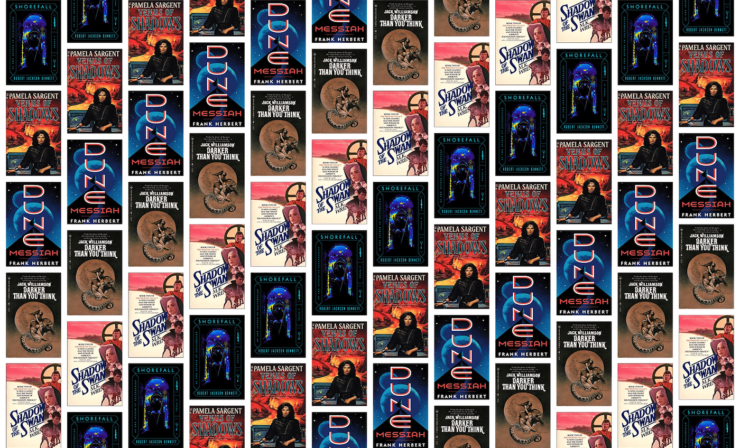Reforming society is jolly hard work—something that could well steal precious time from more enjoyable pastimes. Therefore, delegating the task of saving the world is an attractive option. Simply find some diligent, suitably inspired person, saddle them with responsibility for addressing and correcting the current existential threat, and then head off for another round of darts!
It is hard to see what could go wrong with such a flawless plan. Yet somehow, things often do go amiss. Consider these five works about reforming society.
Darker Than You Think by Jack Williamson (1948)
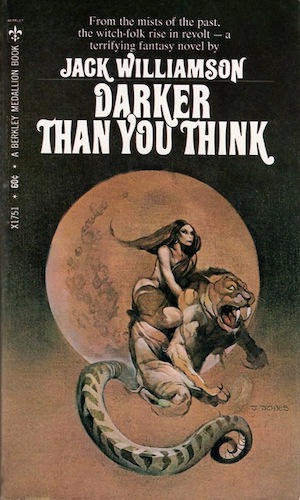
Reporter Will Barbee witnesses the sudden end of anthropologist Mondrick’s press conference; Mondrick dies in the middle of an apocalyptic rant. The secret that Mondrick was murdered to conceal is that modern humanity is the product of two closely related human species: Homo sapiens and Homo lycanthropus. H. lycanthropus is thought to be extinct but…there exists a scheme much like the scientific effort to revive aurochs, a scheme to use selective breeding to recreate H. lycanthropus.
Key to the plan: the Child of Night, a pure-blooded H. lycanthropus who will lead his people to greatness. The catch, so small as to be hardly worth mentioning, is that H. lycanthropus is obligately evil, its members the inspiration for any number of monster legends. Restoration of H. lycanthropus means the horrific oppression of H. sapiens, something Barbee should oppose…if only he were not completely besotted with one of the enemy, and himself an unwitting H. lycanthropus throwback.
There are unexpected parallels here with the revelation that many humans have Neanderthal and Denisovan genes. However, one important difference is that the shapeshifters have special quantum mechanics-based powers. Another is that they tend to either revel in malice or become its unwitting tools.
Dune Messiah by Frank Herbert (1969)
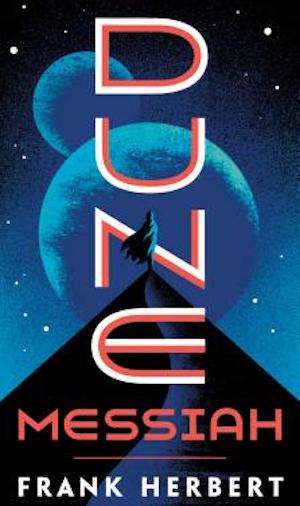
The Bene Gesserit labored for centuries to create a superbeing with a very particular constellation of traits. They succeeded beyond their wildest nightmares. Armed with prodigious prescient abilities, Paul Atreides unified Dune’s Fremen, used the Fremen to overthrow the emperor, and took his place as the natural ruler of all known humanity.
There were a number of minor catches. The Fremen are exuberant warriors with little personal experience of mercy. Over sixty billion people died as a result. Also, Paul’s prescience reveals to him a dismal future, for Paul personally and for humanity in general. What his abilities don’t show is any way for Paul to escape the trap in front of him.
Points to the Bene Gesserit for actually succeeding in their ludicrous eugenics program, but points deducted for failing to see the obvious, which is that mere mortals, even extremely smart ones like the Bene Gesserit, may not be able to foresee the consequences of creating a superhuman.
Shadow of the Swan by M.K. Wren (1981)
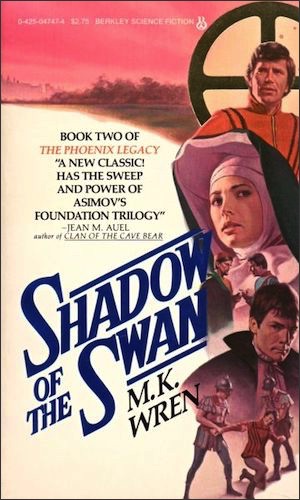
In the second book of the Phoenix Legacy series, the would-be reformers who make up the Society of the Phoenix are poised between two potential leaders: Alex DeKoven Woolf and Predis Ussher. Both claim impressive lineages. Ussher is more adept at infighting and backstabbing (useful skills for a would-be leader). Ussher, however, is power-mad (as well as being garden-variety mad, besides). Ussher’s rule would be catastrophic…but Alex may soon be too dead to prevent Ussher from prevailing.
The Phoenix is presented as a Foundation-like organization armed with powerful social models—although said models aren’t sufficiently robust to notice that one of their two possible leaders is a budding Space Hitler. One also cannot help but notice that the Phoenix don’t really want to immediately free the Bonds, on whose labor civilization depends. They just want the Bonds to abandon their periodic hopeless uprisings, and get better working conditions, healthcare, and education, and become free citizens eventually. Although the last two items might be more optional than the first.
Venus of Shadows by Pamela Sargent (1988)
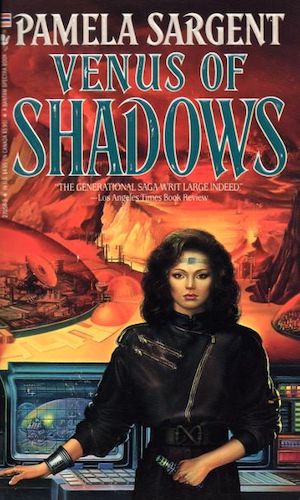
Centuries of backbreaking labor have transformed Venus from an uninhabitable hellhole to a marginally less uninhabitable hellhole on whose surface humans can survive in well-sealed domes. Hard-nosed Risa is determined to guide the Project towards its goal of a habitable Venus, adroitly outmaneuvering those who would undermine the Project for short-term goals. She overlooks the danger presented to the Project by its most ardent believers.
Risa’s blind spot is religion. Risa has no interest in the irrational and absurd Cult of Ishar. Risa’s estranged daughter Chimene not only embraces the Cult, she leads it. When a plague sweeps the colony, Chimene exploits the crisis to seize control of Venus. All will glory in the one true religion…or suffer the consequences of apostasy.
This second volume in Sargent’s Venus trilogy underlines a significant issue with epic projects such as terraforming other worlds, which is that it only takes one episode of mass mania to undermine the sophisticated and potentially fragile infrastructure on which life depends. Luckily for at least some of the characters, this is a middle book of a trilogy so a total party kill is unlikely.
Shorefall by Robert Jackson Bennett (2020)
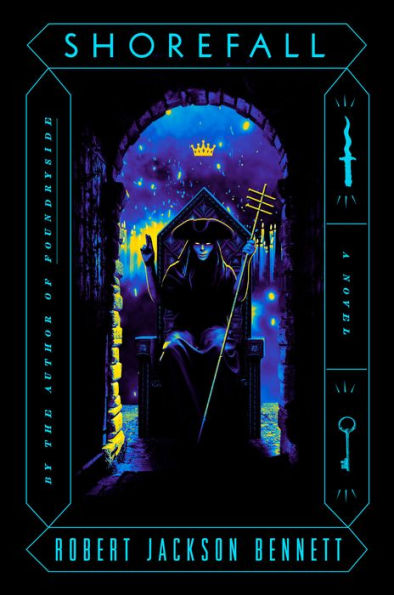
Would-be social revolutionaries Sancia, Berenice, Orso, and Gregor are determined to reform Tevanne’s horrifically exploitative society from within. Audacity and innovation have won the quartet status as a recognized merchant house. The next step is to use subterfuge to trick the established merchant houses into undermining themselves.
Ofelia Dandolo of the Dandolo merchant house also craves reform. Having no faith in incremental progress, she places all of her hopes in demi-god revolutionary Crasedes Magnus. True, Crasedes is currently dead but this is a curable medical condition. A more serious issue, one Ofelia will not grasp until it is too late, is that four thousand years of failure to save humanity from itself has embittered Crasedes. Crasedes has a bold plan to force humanity to meet his lofty expectations. He also exhibits complete indifference to collateral damage.
In Ofelia’s defense, her son Gregor and his friends have their own quasi-messianic ally whose plan differs in details but which is just as alarming as that of Crasedes. It’s almost as though investing hopes and dreams in godlike entities without doing due diligence is a bad idea…
***
No doubt there are a myriad of worthy examples that I’ve overlooked in this essay. Have a favourite example? Feel free to mention it in comments below.
In the words of fanfiction author Musty181, four-time Hugo finalist, prolific book reviewer, and perennial Darwin Award nominee James Davis Nicoll “looks like a default mii with glasses.” His work has appeared in Interzone, Publishers Weekly and Romantic Times as well as on his own websites, James Nicoll Reviews (where he is assisted by editor Karen Lofstrom and web person Adrienne L. Travis) and the 2021, 2022, and 2023 Aurora Award finalist Young People Read Old SFF (where he is assisted by web person Adrienne L. Travis). His Patreon can be found here.










